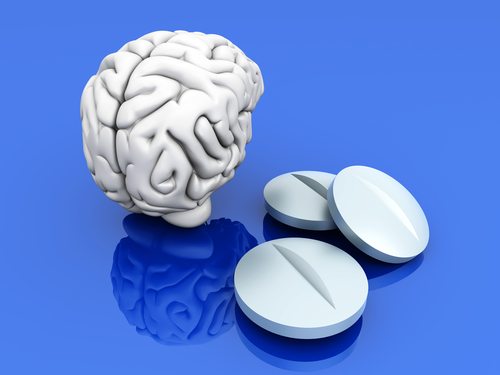This past month at Vertava Health, we’ve had heavy discussions about prescription drug use, use, and addiction. After all, prescription drugs are the fastest growing addiction in America. We’ve told you how to recognize the signs that your loved one may be abusing prescription medications, how easily accessible prescription pain pills are at pain management clinics, even the things doctors don’t tell you about painkillers. There’s been a lot of defense about using pain medications and a lot of questions about the difference between dependency on pills like Percocet or Vicodin to manage chronic pain – and addiction. These were some of our Facebook responses: “Addicts ruin it for people who need the medication to help them function in their daily lives.” “Pain interferes with people’s ability to live life. My mom would’ve ended her life 20 years ago if it wasn’t for pain management.” “Oh, and btw, if people took their meds AS PRESCRIBED, dependence and addiction wouldn’t be a big issue.” Drug dependence and drug addiction are not the same thing. Although the two are often used interchangeably, there IS a difference. The problem is the gray area between the two, where the line is drawn – and how easily a person can slip from one to another. Allow me to explain. It is possible to be dependent on benzos or opioids without being addicted to benzos or opioids. Think of a person being treated with morphine for chronic pain. That person may become dependent on morphine. If the morphine is stopped, they will suffer opiate withdrawal symptoms like restless legs, achy joints, diarrhea, cramps, and profuse sweating. This same person might develop a tolerance to the drug, where over time, their bodies are desensitized to the morphine – and their bodies require more of it (or an additional type of opiate like Hydrocodone) to achieve a certain effect. This person isn’t a compulsive user of the morphine, they are taking as prescribed – and they are dependent. Did you notice? Just because a person is not abusing a prescription drug – doesn’t mean they’re not dependent. And dependence can happen with the chronic use of prescription drugs, even if taken as instructed Addiction is when using an opiate, like OxyContin or Lortab, seems to dominate a person’s motivation. When a person is addicted to an opiate, normal constraints on their behavior are basically ineffective. When addiction commands the brain, their regular survival instincts for food, water, affection and shelter are altered. Rather than live in the world, their brains are re-trained by drugs to believe that physiological survival is now based on procuring and imbibing the prescription drug they may be addicted to or the cocaine or meth that has taken priority. Addiction drives an overwhelmingly powerful motivation to obtain and self-administer the drug. Because the drug has chemically altered their brain – which has altered their motivations and behaviors. Prescription drug addiction can be characterized by behaviors like:
- Getting high on prescription drugs like OxyContin or Lortab takes priority over eating
- If you go too long between getting high you can’t sleep or think of anything except how to get the next pill
- You have withdrawal symptoms when you stop. Symptoms like being sick to your stomach, sweating, shakiness, and anxiety are a part of withdrawal.
- >Your day is spent finding ways to buy more painkillers. You have given up your regular life activities, relationships, friendships, or work to pursue pain pills
- You continue to use no matter the physical and emotional consequences.
Addiction is a primary, chronic, and biological disease. It’s not a weakness or a lack of willpower. Like most other diseases, it has a course that can be predicted, has known symptoms, and is affected by your genes and your life situation.
The Gray Area
There is a gray area – and not necessarily a very wide one – that can form between dependence and addiction. It is so easy to slip from one to another. If it wasn’t – there wouldn’t be someone dying from a prescription drug overdose every 19 minutes. The fact is, no one actually decides to get addicted to prescription pain pills. No one wants to lose their jobs or home, no one wants their children taken away from them, and no one wants to steal from their loved ones. No one plans on doing those things that when they swallow their first Percocet. No one plans on becoming addicted. So if it isn’t a choice, why do some people become addicted to drugs and some don’t? According to the National Council on Alcohol and Drug Dependence (NCADD), addiction isn’t about moral issues a lack of willpower – it has to do with genetics, family history, and how your body responds to the drug. Plain and simple, people’s bodies respond to the effects of prescription drugs differently. Not everyone who is prescribed painkillers will become addicted to them. However, some people who are prescribed to prescription painkillers WILL. “Dependency vs. Addiction” is NOT a “Good vs. Bad” issue. A person with a dependency and a person with addiction are both taking a drug because they are sick. So the issue becomes: how we can help those who are addicted?


